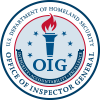The Trade Facilitation and Trade Enforcement Act of 2015 (TFTEA) requires U.S. Customs and Border Protection (CBP) to establish standard operating procedures (SOP) for searching, reviewing, retaining, and sharing information in communication, electronic, or digital devices at U.S. ports of entry. We determined that CBP’s Office of Field Operations (OFO) did not always conduct the searches at U.S. ports of entry according to its SOPs. Specifically, because of inadequate supervision to ensure OFO officers properly documented searches, OFO cannot maintain accurate quantitative data or identify and address performance problems related to these searches. These deficiencies in supervision, guidance, and equipment management, combined with a lack of performance measures, limit OFO’s ability to detect and deter illegal activities related to terrorism; national security; human, drug, and bulk cash smuggling; and child pornography.
Open Recommendations
| Recommendation Number | Significant Recommendation | Recommended Questioned Costs | Recommended Funds for Better Use | Additional Details | |
|---|---|---|---|---|---|
| 5 | No | $0 | $0 | ||
| We recommend the Executive Assistant Commissioner of the Office of Field Operations: a) Develop and implement performance measures for the advanced searches of electronic devices pilot program. b) Evaluate the effectiveness of the pilot program to determine whether the advanced searches are achieving the program's intended purpose. c) Work with the Commissioner of U.S. Customs and Border Protection to evaluate the performance of Office of Field Operations in the advanced searches of electronic devices pilot program and, based on the results of such evaluation, decide whether to discontinue or establish it as a permanent program of record. | |||||


